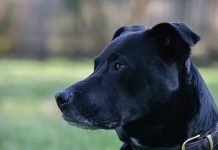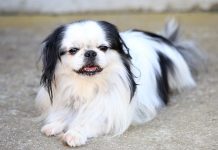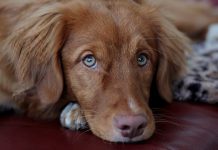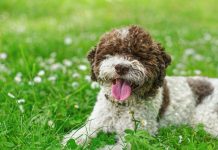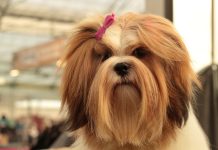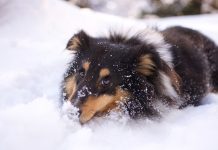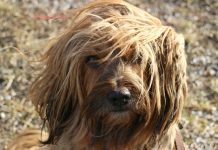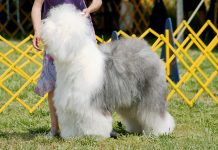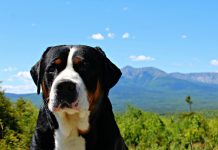History and Origins of the Bichon Frise Breed:

The Bichon Frise is an ancient breed with roots that trace back to the Mediterranean region, specifically to the islands of Tenerife and Malta. This delightful small dog has a rich history and has been cherished by nobility and commoners alike throughout the ages.
- Ancient Origins: The Bichon Frise’s ancestors can be traced back to ancient times, where they were likely descendants of the Barbichon family of small, white dogs that included the Bichon Frise, Maltese, and Bolognese breeds.
- Spanish and Italian Influence: The breed’s name “Bichon” is derived from the Middle French word “bichon,” which means “small dog.” Spanish sailors likely brought these dogs to the Canary Islands, where they were further developed into the Bichon Tenerife, a predecessor of the modern Bichon Frise.
- Renaissance Popularity: During the Renaissance period, Italian sailors rediscovered the Bichon-type dogs on the Canary Islands and introduced them to European courts, where they quickly became popular among nobility and royalty.
- French Connection: By the 16th century, Bichon-type dogs gained popularity in France, particularly during the reign of King Francis I. The breed became a favorite among the French aristocracy and was later known as the “French Bichon.”
- Decline and Revival: The Bichon Frise’s popularity waned during the French Revolution and subsequent political upheavals, leading to a decline in numbers. However, dedicated breed enthusiasts and breeders worked to revive the Bichon Frise, and the breed was officially recognized by the French Kennel Club in the 1930s.
- Modern Recognition: The Bichon Frise was recognized by the American Kennel Club (AKC) in 1973 and has since become a beloved companion dog worldwide.
Physical Characteristics and Appearance of Bichon Frise Dogs:
The Bichon Frise is a small, sturdy dog with a distinctive fluffy coat and a cheerful, merry disposition. Here are the key physical characteristics and appearance traits of the Bichon Frise:
- Size: The Bichon Frise is a small dog, typically weighing between 10 to 18 pounds and standing around 9 to 12 inches tall at the shoulder.
- Body: The Bichon Frise has a compact and well-proportioned body with a slightly rounded skull, dark, expressive eyes, and a black nose.
- Coat: The breed’s hallmark is its dense, curly coat that resembles a powder puff. The coat is hypoallergenic and usually pure white, although some Bichons may have cream or apricot markings.
- Tail: The Bichon Frise has a plumed tail that is carried jauntily over its back.
- Gait: Bichons move with a springy, confident gait, showing off their lively and playful demeanor.
- Expression: The Bichon Frise’s expression is alert, friendly, and intelligent, reflecting its happy-go-lucky personality.
- Overall Appearance: The Bichon Frise presents a picture of a well-balanced, cheerful, and charming dog with a lively and affectionate personality.
The Bichon Frise’s unique combination of intelligence, affection, and delightful appearance has made it a popular choice as a companion dog and family pet. Its history as a cherished breed among European nobility is reflected in its elegant yet approachable demeanor and enduring appeal.
Bichon Frise Temperament and Personality Traits:
The Bichon Frise is known for its cheerful and affectionate temperament, making it a delightful companion and family pet. Here are some key temperament and personality traits of the Bichon Frise:
- Playful and Energetic: Bichons are lively and spirited dogs that enjoy playtime and interaction with their family members. They have a playful demeanor that remains well into adulthood.
- Affectionate and Friendly: Bichon Frises are inherently social and thrive on human companionship. They are affectionate towards their family members and generally friendly towards strangers, making them excellent companion dogs.
- Intelligent and Trainable: Despite their small size, Bichon Frises are intelligent dogs that excel in training. They are eager to please and respond well to positive reinforcement techniques. Early socialization and consistent training help bring out their best qualities.
- Alert and Watchful: Bichon Frises have a keen sense of awareness and will alert their owners to approaching visitors or potential threats. They make excellent watchdogs due to their alert nature.
- Adaptable: Bichons are adaptable dogs that can thrive in various living situations, including apartments or family homes. They enjoy being part of the family and can adapt to different lifestyles.
- Playful with Children: Bichon Frises are generally good with children and enjoy playing games. However, they should always be supervised around young children to prevent accidental injury due to their small size.
- Low-Shedding and Hypoallergenic: Bichons have a coat that is low-shedding and considered hypoallergenic, making them suitable for individuals with allergies. Regular grooming is essential to maintain their coat.
- Curious and Inquisitive: Bichons are curious by nature and enjoy exploring their surroundings. They benefit from mental stimulation and interactive play to prevent boredom.
Training and Socialization Needs for Bichon Frise Dogs:
Proper training and socialization are essential for shaping the behavior and temperament of Bichon Frises. Here are some tips for training and socializing your Bichon Frise:
- Early Socialization: Expose your Bichon Frise to various people, pets, and environments from a young age to promote confidence and good social skills.
- Positive Reinforcement: Use rewards-based training methods such as treats, praise, and play to motivate and encourage desired behaviors.
- Basic Obedience Training: Teach basic commands such as sit, stay, come, and heel using positive reinforcement techniques. Bichons are quick learners and enjoy mental challenges.
- Consistency: Be consistent in your training approach and set clear rules and boundaries for your Bichon Frise to follow.
- Patience and Encouragement: Bichons respond best to gentle guidance and encouragement. Avoid harsh training methods, as they can be sensitive dogs.
- Regular Exercise: Provide daily exercise to keep your Bichon Frise physically and mentally stimulated. Interactive play sessions and short walks are ideal.
- Grooming Routine: Establish a regular grooming routine, including brushing, bathing, nail trimming, and dental care. This helps maintain the Bichon’s coat and overall health.
By providing proper training, socialization, and care, you can ensure that your Bichon Frise develops into a well-mannered, well-adjusted companion that brings joy and happiness to your household. Their loving nature and playful personality make them wonderful family pets for individuals and families alike.
Health Considerations and Common Issues in Bichon Frise Dogs:
While generally healthy and long-lived, Bichon Frises, like all breeds, are prone to certain health conditions. Understanding these potential issues can help you provide the best care for your Bichon Frise:
- Patellar Luxation: This is a condition where the kneecap (patella) dislocates or moves out of its normal position. It can cause lameness and discomfort and may require surgical correction.
- Skin Allergies: Bichons are susceptible to skin allergies and dermatitis, which can be triggered by food, environmental factors, or flea bites. Regular grooming and proper flea control are essential.
- Hip Dysplasia: This is a genetic condition where the hip joint doesn’t develop properly, leading to arthritis and mobility issues. Responsible breeding practices can help reduce the risk.
- Progressive Retinal Atrophy (PRA): PRA is a degenerative eye disease that can lead to blindness. Regular veterinary check-ups can help detect this condition early.
- Bladder Stones: Bichons may be prone to developing bladder stones, which can cause urinary issues and discomfort. Proper hydration and a balanced diet can help prevent this condition.
- Ear Infections: Bichons have floppy ears that can trap moisture, leading to ear infections. Regular ear cleaning and maintenance are important to prevent infections.
- Dental Issues: Small breeds like Bichons are prone to dental problems such as tartar buildup and tooth decay. Regular brushing and dental care can help maintain good oral health.
Living with a Bichon Frise: Suitable Environments and Lifestyle Considerations:

Bichon Frises are adaptable dogs that can thrive in various living environments, but they have specific needs and considerations to ensure their well-being and happiness:
- Indoor Living: Bichons are indoor dogs and should not be kept outdoors for extended periods. They thrive on human companionship and enjoy being part of the family.
- Regular Exercise: Despite their small size, Bichons are energetic dogs that require daily exercise to stay healthy and prevent obesity. Interactive play sessions and short walks are ideal.
- Grooming Requirements: Bichons have a dense, curly coat that requires regular grooming to prevent matting and tangles. Plan for regular brushing, bathing, and professional grooming every 4-6 weeks.
- Socialization: Bichons are social dogs that enjoy interacting with people and other pets. Early socialization helps them develop good manners and confidence.
- Moderate Climate: Bichons are sensitive to extreme temperatures and prefer moderate climates. Avoid exposing them to excessive heat or cold.
- Routine Veterinary Care: Regular veterinary check-ups are essential to monitor your Bichon’s health and detect any potential issues early.
- Attention and Affection: Bichons thrive on attention and affection from their owners. They make excellent companions for individuals and families who can provide love and companionship.
By understanding the specific health considerations and lifestyle needs of Bichon Frises, you can create a nurturing environment that allows your Bichon to live a happy, healthy, and fulfilling life as a cherished member of your family. Regular veterinary care, proper grooming, and attentive care are key to ensuring the well-being of your Bichon Frise companion.
Bichon Frise Variations and Breeding Practices
The Bichon Frise is a distinctive breed known for its curly coat, cheerful demeanor, and affectionate personality. While the breed standard for the Bichon Frise is well-defined, variations within the breed can occur due to factors such as breeding practices and individual genetics. Here are some variations and considerations related to Bichon Frise breeding practices:
Variations Within the Bichon Frise Breed:
- Size Variations: The Bichon Frise is typically a small breed, but variations in size can occur within the breed. Some Bichons may be slightly smaller or larger than the standard size range of 9 to 12 inches at the shoulder and 10 to 18 pounds in weight.
- Coat Color and Markings: While the Bichon Frise is known for its white coat, variations in coat color and markings can occur. Some Bichons may have cream or apricot-colored markings on their coat, though these are not as common as the standard white coat.
- Temperament Traits: While the Bichon Frise breed is known for its friendly and affectionate temperament, individual dogs may exhibit variations in personality traits. Some Bichons may be more outgoing and sociable, while others may be more reserved or shy.
- Health Considerations: Responsible breeding practices aim to minimize the risk of genetic health issues within the Bichon Frise breed. However, variations in health can occur due to genetic factors or environmental influences.
Breeding Practices for Bichon Frise:
- Health Testing: Responsible breeders prioritize the health and well-being of Bichon Frises by conducting health screenings for genetic conditions such as hip dysplasia, patellar luxation, and progressive retinal atrophy (PRA). Screening helps identify dogs with favorable health traits for breeding.
- Conformation Standards: Bichon Frise breeders adhere to strict conformation standards outlined by kennel clubs and breed organizations. These standards define the ideal physical characteristics, temperament, and structure for the breed.
- Pedigree Research: Ethical breeders research the pedigree of Bichon Frises to ensure genetic diversity and minimize the risk of inherited health conditions. They select breeding pairs based on compatible traits and qualities.
- Socialization and Early Training: Reputable breeders prioritize early socialization and basic training for Bichon Frise puppies to ensure they develop into well-rounded and confident adults.
- Ethical Practices: Responsible breeders prioritize the welfare of their dogs and adhere to ethical breeding practices. They provide proper care, nutrition, and veterinary attention for their breeding dogs and puppies.
- Lifetime Support: Good breeders offer lifetime support and guidance to puppy buyers, including information on health care, training, and breed-specific considerations.
It’s essential for prospective Bichon Frise owners to seek out reputable breeders who prioritize the health, temperament, and well-being of their dogs. By supporting responsible breeding practices, you contribute to the preservation and improvement of the Bichon Frise breed for future generations.
50 Best Names with Meanings for Bichon Frise
Naming your Bichon Frise can be a fun and meaningful process. Here are 50 great names with meanings that could be perfect for your adorable Bichon Frise:
- Bella – Means “beautiful” in Italian.
- Charlie – A friendly and popular name for dogs.
- Lulu – Short for “luminous” or “bright.”
- Teddy – A cute and cuddly name, reminiscent of a teddy bear.
- Milo – Means “soldier” or “merciful” in Latin.
- Coco – A sweet name, also referring to the cocoa bean.
- Lola – Means “sorrows” in Spanish.
- Oscar – Signifies “divine spear” or “champion.”
- Rosie – Derived from the name “Rose,” symbolizing love and beauty.
- Max – Short for “Maximilian,” meaning “greatest.”
- Sophie – Means “wisdom” in Greek.
- Oliver – A popular name meaning “olive tree.”
- Lucy – Derived from “Lucia,” meaning “light” in Latin.
- Bailey – Refers to a bailiff or steward.
- Mia – Means “mine” or “darling” in Italian.
- Toby – A cheerful and friendly name for dogs.
- Buddy – Perfect for a loyal and devoted companion.
- Daisy – Symbolizes innocence and purity.
- Finn – Means “fair” or “white” in Irish.
- Molly – A classic name meaning “bitter” in Hebrew.
- Cooper – Refers to someone who makes or repairs barrels.
- Zoe – Means “life” in Greek.
- Gizmo – Great for a small, curious dog.
- Stella – Represents “star” or “light.”
- Cody – A playful and energetic name.
- Penny – Short for “Penelope,” meaning “weaver” in Greek.
- Leo – Signifies “lion,” representing strength and courage.
- Belle – Means “beautiful” in French.
- Rudy – Represents “famous wolf.”
- Poppy – Symbolizes remembrance and consolation.
- Archie – A lively and spirited name.
- Sadie – Means “princess” or “noble” in Hebrew.
- Louie – A stylish and charismatic name.
- Minnie – Perfect for a petite and adorable dog.
- Rocky – Signifies strength and resilience.
- Ivy – Represents faithfulness and fidelity.
- Jasper – A gemstone name associated with elegance.
- Millie – A sweet and gentle name.
- Benji – Short for “Benjamin,” meaning “son of the right hand.”
- Ruby – Represents passion, vitality, and energy.
- Harley – A cool and confident name.
- Piper – Refers to a musical performer or a pipe player.
- Winston – A distinguished and regal name.
- Hazel – Symbolizes wisdom and protection.
- Rocco – Represents “rest,” signifying peace and tranquility.
- Lucky – Perfect for a dog that brings good fortune.
- Annie – A classic and timeless name.
- Baxter – Refers to a baker, ideal for a food-loving dog.
- Sasha – Means “defender of mankind” in Russian.
- Winnie – Short for “Winifred,” meaning “blessed peacemaking.”
Choose a name that resonates with your Bichon Frise’s personality, appearance, or the qualities you love most about them. Whether you prefer a classic name or something more unique, these options provide plenty of inspiration for naming your beloved Bichon Frise companion.

In conclusion, this comprehensive guide to Bichon Frise dogs has provided a detailed exploration of this delightful and charming breed. Throughout our discussion, we’ve delved into the history, distinctive characteristics, and essential care considerations that define Bichon Frises. Known for their cheerful disposition, affectionate nature, and fluffy appearance, Bichon Frises make wonderful companions for families and individuals seeking a loving and adaptable pet. They thrive on companionship and are well-suited to various living environments, from apartments to larger homes. As you embark on your journey with a Bichon Frise, may you appreciate their unique qualities and form a strong bond with this delightful breed, creating lasting happiness and companionship together.







